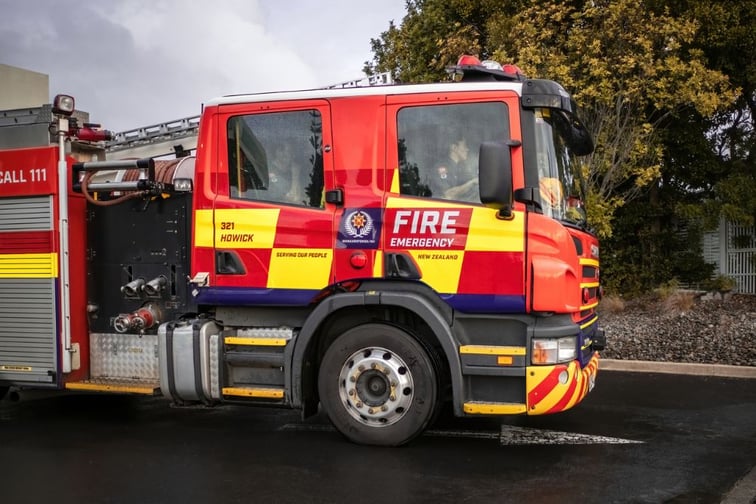

Internal Affairs Minister Barbara Edmonds has defended the government’s choice of the insurance-based levy model for Fire and Emergency New Zealand (FENZ), saying it stands as the best option.
Last October, in comments submitted by the Insurance Council of New Zealand Te Kāhui Inihua o Aotearoa (ICNZ) to the Governance and Administration Select Committee, ICNZ chief executive Tim Grafton wrote: “While ICNZ maintains that funding FENZ from the discretional purchase of insurance is not the correct funding mechanism because, among other reasons, it penalises those property owners that purchase insurance to protect their investments and allows those that don’t insure to receive free service from FENZ, we believe that the [Fire and Emergency New Zealand (Levy) Amendment Bill] corrects most of what is wrong with the 2017 legislation.”
Representing general insurers and reinsurers that insure about 95% of the Kiwi general insurance market, ICNZ has long held the position that the most appropriate mechanism to fund the Fire and Emergency Service is through general taxation and not via contracts of insurance.
However, during the third and final reading of the now-enacted bill, Edmonds stated: “I want to take a moment to address the concerns about the government continuing with the insurance-based levy model. We believe that a levy on insurance policies is still fit for purpose for the medium term. It will provide Fire and Emergency with the funding it needs and be the least costly to system administrators. Therefore, it stands as the best option.”
During the bill’s final stage in Parliament, the Internal Affairs Minister also cited what the changes mean for those affected by the levy regime.
“This bill amends the start date for the new levy to July 1, 2026,” she said. “In doing so, it allows preparation time for insurers to implement the new levy, along with time for associated regulations to be complete. Property insured against physical loss or damage from fire will pay the levy, instead of property insured against physical loss or damage. This bill also means that the levy will be calculated on the sum insured rather than the amount insured in an insurance contract.
“What these changes do is better align with insurance practice, avoiding the need for complex calculations or the risk of people being levied twice. We are committed to ensuring that the new Fire and Emergency levy is simple and efficient to implement. The bill will minimise disruption and compliance costs from the new levy, while remaining aligned to the levy principle that the Fire and Emergency New Zealand Act sets out.”
In a separate pronouncement following the bill’s passing, Edmonds cited the “best balance” between a fair and cost-effective funding model. She said it was important to ensure a fit-for-purpose funding model, given that FENZ is funded by a 97% levy collection on insurance policies.
“By getting this framework right, we are delivering on a more effective and efficient levy regime that benefits insurance holders,” she said after the amendment bill crossed the finish line. “These changes will reduce cost pressures on the insurance sector, keeping costs lower for New Zealanders.”
In Parliament, Edmonds also offered assurances when it comes to FENZ response, while thanking those who were involved in amending the original legislation.
“The changes made in this bill will not impact how much revenue Fire and Emergency receives,” noted the Internal Affairs Minister during the final reading. “It can spend the levy on whatever is required to deliver its functions. I want to assure our communities that Fire and Emergency New Zealand will have enough revenue to respond to all events under its mandate, including the floods and natural hazards events.
“I’d also like to acknowledge those who contributed to the success of this bill. I acknowledge the previous Minister of Internal Affairs, the Hon Jan Tinetti, who introduced this bill to the House. I would like to thank those involved in the Fire and Emergency funding review which led to the changes in this bill. This also includes the 71 submitters to the funding review, and everyone that took part in the 13 public meetings and hui back in 2020.”
Grafton’s camp was among those mentioned by Edmonds.
“I’d like to also thank those who are part of the insurance reference group and commercial property reference group that helped improve the insurance-based levy in the build-up to this bill. In particular, the Insurance Council of New Zealand, the Insurance Brokers Association of New Zealand, Property Council New Zealand, and of course Fire and Emergency New Zealand,” she said.
“Again, I’d like to thank the Governance and Administration Committee for their constructive consideration of this bill. I appreciate the time the committee took to understand this bill and the views of submitters.”
Insurance Business has reached out to ICNZ for comment.
